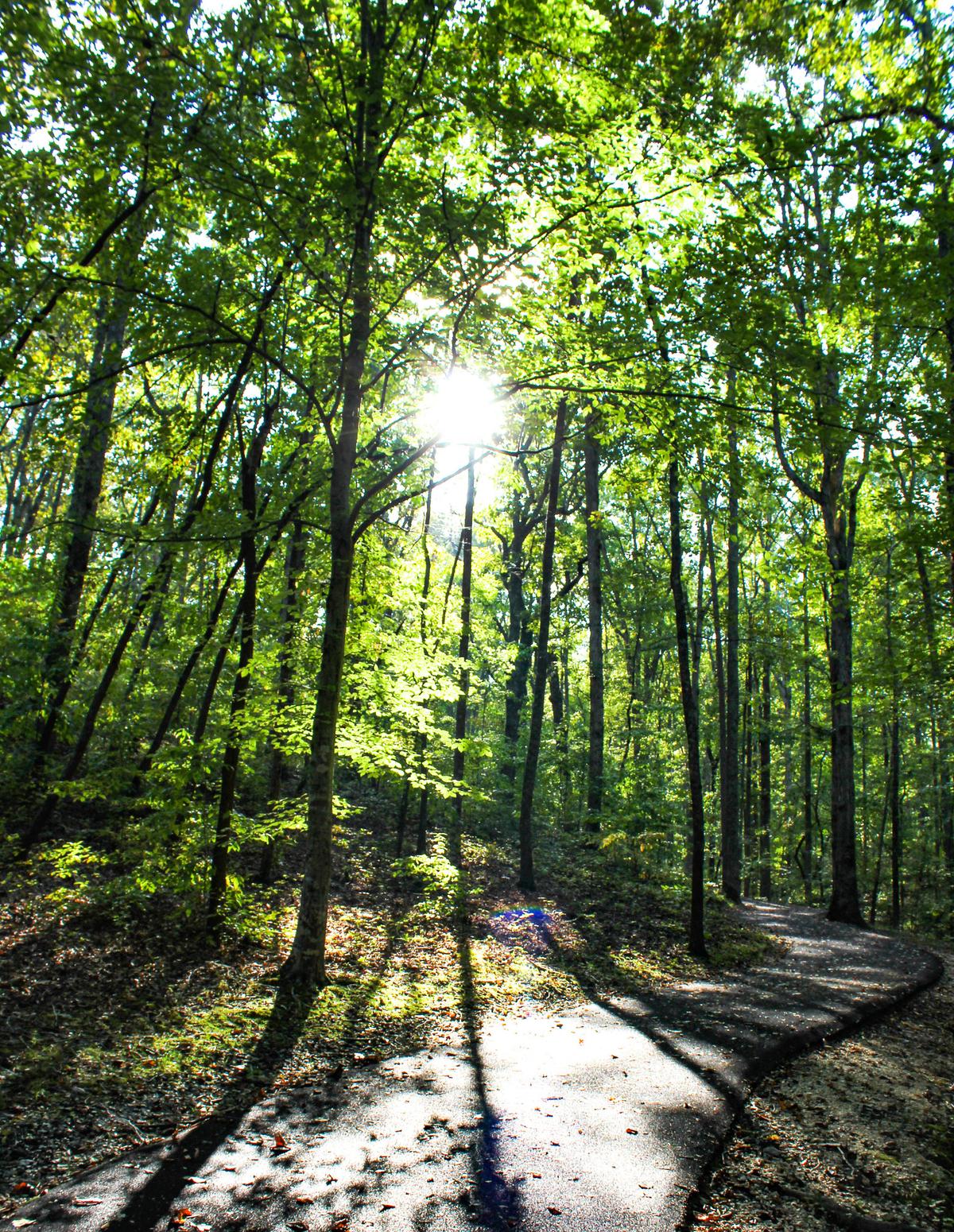Up a windy road lined with trees in Blacksburg, South Carolina, stands Kings Mountain National Military Park. My children, ages 2 and 4, had begged us to stay at the nearby (and equally beautiful) Kings Mountain State Park, which had, among other amenities, an impressive playground. Luckily, my husband is as enthusiastic a lover of history as I am, and we soon found ourselves strolling the trail at the national park, our children lost at play as they ran circles around us.

A paved trail through the woods at Kings Mountain National Military Park. NPS/Victoria Stauffenberg





